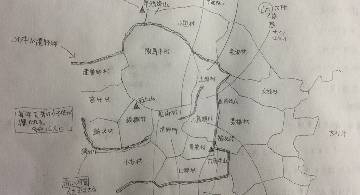●
I borrowed this book from my dear roommate and decided to give it a summary and my thoughts.
Keiko Furukura has been a rational individual since she was a kid. She brings home a dead bird for her family who loves poultry dishes. When boys fight in class and someone yells, "Someone stop this!", she beats them down with a shovel, announcing, "Stopped it!" She's kind, rational, and strong. But this makes people around her uncomfortable, so she learns to act cautiously and minimally social thanks to her sister's advice. Then she discovers the paradise of convenience stores, where following the manual is all you need to do to be appreciated.
Fast forward 18 years, Keiko is now 36 years old and facing social pressure for being single, without any romantic experiences, and still working part-time. Her go-to excuse about a chronic illness is also wearing thin. She comes across Shiraha, a 35-year-old man also tired of social scrutiny. Keiko hatches a plan: if they live together or even get married, that should silence the critics. It works wonders; everyone is suddenly happy for her. Keiko even quits her convenience store job to look for full-time corporate work. The plan is to have a conventional setup with Shiraha as a househusband and Keiko as the breadwinner.
Just before her first job interview, Keiko drops by a convenience store and feels a wave of nostalgia. Her body screams that she's meant to be a convenience store worker. Despite Shiraha's warning that she will regret it, Keiko firmly says, "I can't go with you. I am a creature called a convenience store worker." And so, she returns to her true calling.
●
Wow, that was incredibly easy to read! The list of stories with "kind, rational, and human protagonists" as chosen by Midori just got longer. Other stories in the list include Camus' "The Stranger", Nisioisin's "Shouting Lessons", and Yasutaka Tsutsui's "Traveling Lagos". Looking at them side by side, I really love all these characters like Mersault, Sora, Lagos, and Keiko. They are kind, rational, human, and most importantly, they take action. They're perfect actors for storytellers, propelling the narrative forward. I might have said this before, but Keiko's strong resolve at the end was electrifying. I love people who can clearly articulate what they want to do.
The theme of this story is definitely self-discovery, or finding one's way of life. It's just like Natsume Soseki's "The Miner". It's about realizing how great your original place was after briefly stepping into a different environment. Keiko has spent 18 years in the sacred space that is the convenience store, so she's used to it, and used to its value. That's why even a little push from people around her makes her think, "Hmm, maybe I should change things up a bit." But in the end, she understands the greatness of her original place, and everyone lives happily ever after. I might be sounding a bit harsh, but I think it's fun and beneficial to take these kinds of adventures. The more you explore, the more confident you become in yourself and where you belong. Those who walk a lot stand tall. Plus, Keiko's motivation to take this adventure came in part from her kindness toward her sister and Shiraha. What a good person. People around Keiko should learn from her.
Unlike "The Miner," where the protagonist is pretty pathetic and the story turns into a moral lesson, "Convenience Store Woman" doesn't feel like a lesson at all, thanks to the remarkable Keiko. Instead, it leaves you thinking, "Yeah, that makes sense." I like that way better. Yeah, that makes sense. Man, this was great.

